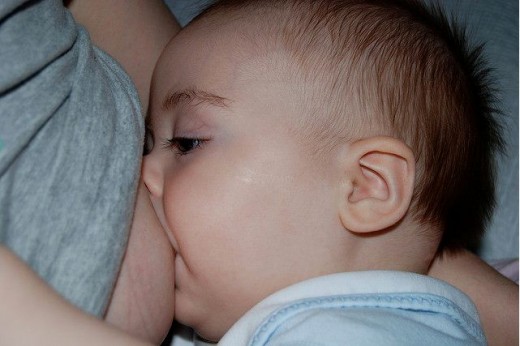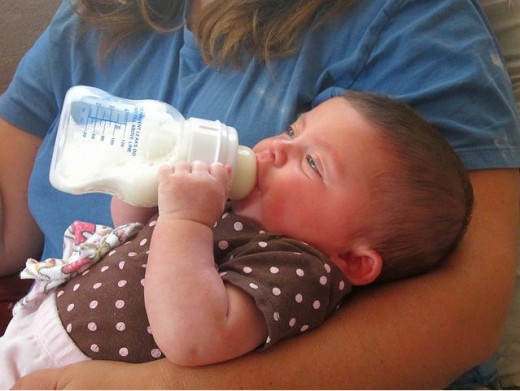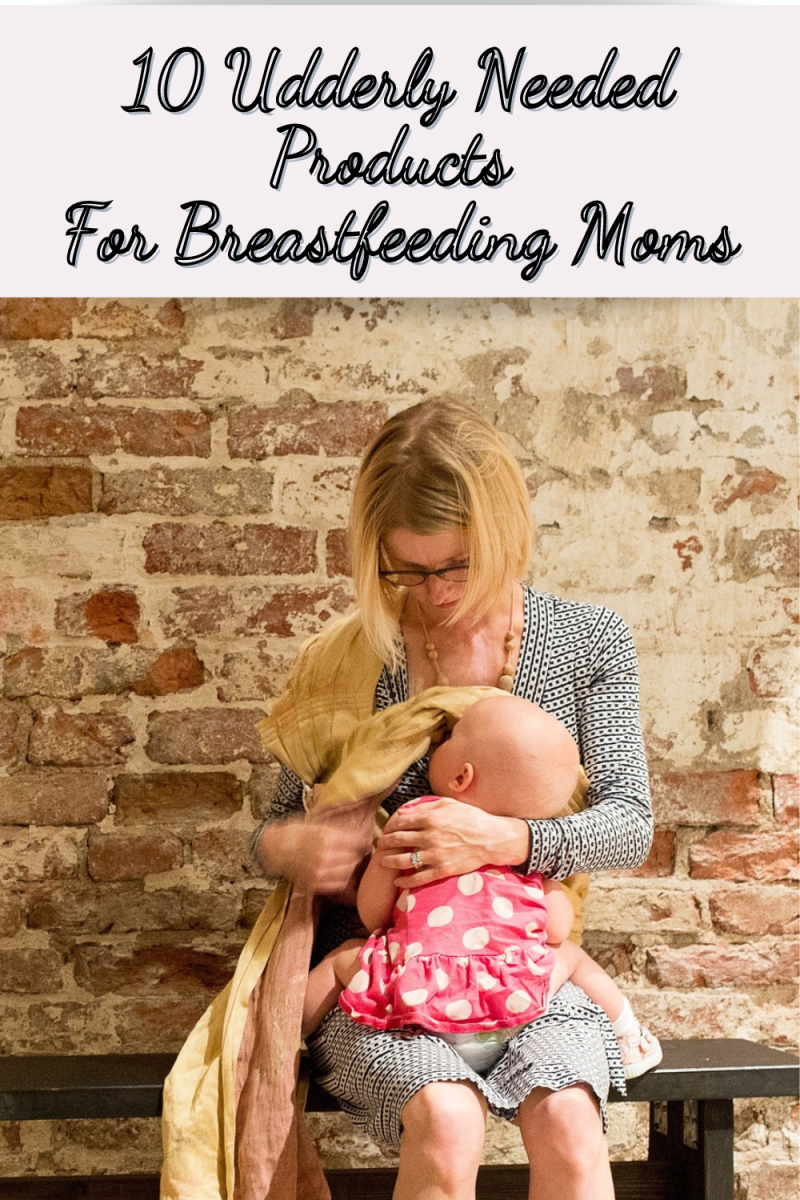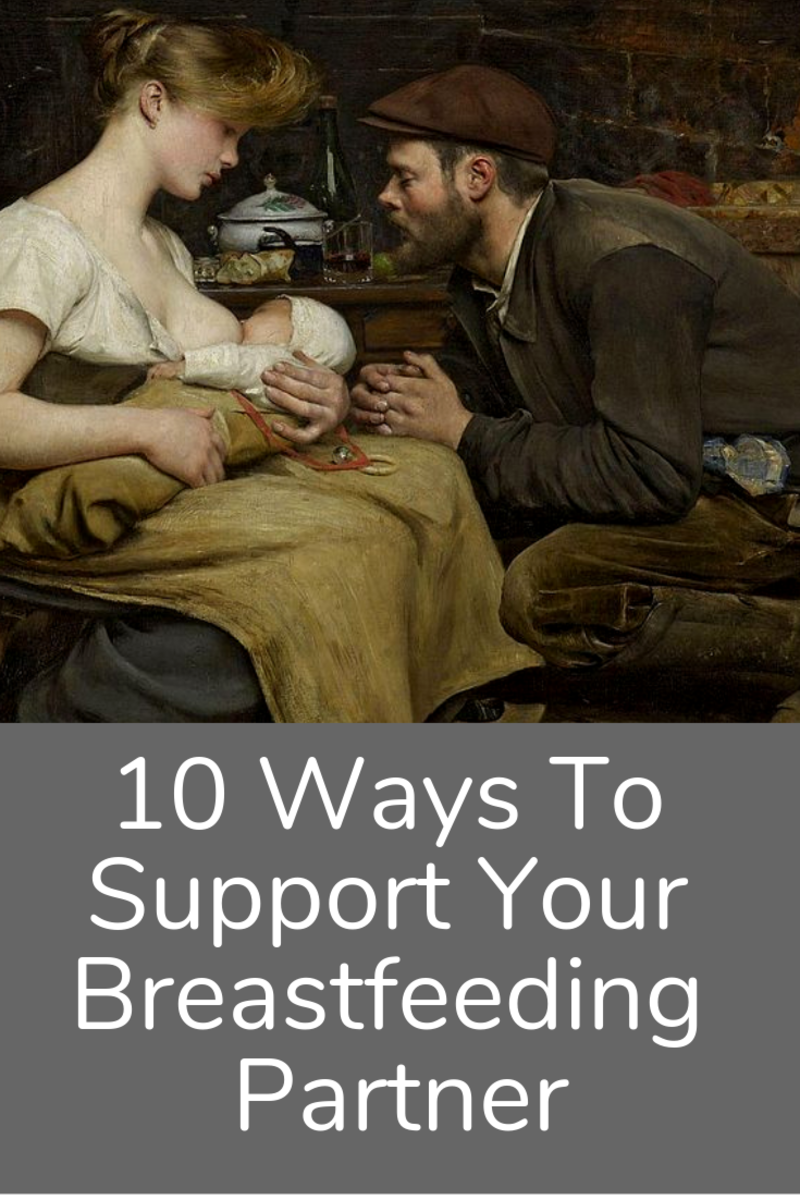The pros and cons of breastfeeding

One of the things mothers (to be) have to consider is feeding, specifically: 'will I breastfeed my baby?'. To help mothers who are pondering whether to start breastfeeding and mothers who may have trouble breastfeeding I will share my knowledge about the subject. I have studied the topic extensively for my studies and my knowledge and facts come from the current views on motherhood, breastfeeding and health.
Scroll down to the end to view a table with pros and cons!
Most mothers start with breastfeeding, but they quit after a week or a few months. Usually they start because this is a normal 'procedure' in hospitals. Soon after coming home, however, a lot of these mothers stop breastfeeding. The reasons for this are divers, but usually they're a variation on things such as finding it a lot of work, insecurity about the amount or quality of their milk or a child that just won't drink like it should. This is a shame, because there are a lot of positive effects to breastfeeding.
For starters; it helps the baby's immune system. When a baby is inside the mother's uterus it will receive antibodies from the mother's blood. (These are able to cross the placenta, much like oxygen, hormones and also any alcohol the mother has ingested.) After the baby is born it will have to start making these on it's own. The only problem is: the immune system of a newborn isn't fully developed yet. Luckily, the antibodies it's mother gave it during pregnancy will protect it. Unfortunately, slowly, the amount of antibodies will regress, and this will happen faster than the infant is able to make new ones. Meaning; the child will become less protected for a while. A mother is able to provide antibodies for the child through her breast milk, so breastfeeding will keep your child safer from disease.
Apart from giving your child protection, breast milk also provides your child with the exact amount of milk needed, and the perfect composition for this individual child (in contrast to formula). Breastfeeding is a process of supply and demand. When a baby needs more milk, it will want to drink more. A mother will then attempt to feed more often. Of course, this won't increase the amount of milk immediately. But by letting your child drink more often, your body will receive the signal to start making more milk. In fact, it's perfectly normal for a child to have certain 'high demand periods' in which it will want to drink up to twice as much as before. This may stay like this for a few days, until the mother's amount of breast milk has increased. After this, the baby will start to drink normally again.

So it seems that an infant knows exactly how much feeding it needs, and how to get this. This is actually quite important in the light of obesity, an ever growing problem. With breastfeeding, a child will regulate the amount of feeding it gets. With bottle feeding however a lot of mothers will make their child drink the whole bottle, even if this is actually too much. An often heard concern of mothers is that their child won't get enough to drink if they don't make them drink the entire bottle, even though the child has had enough to drink. These children will then be more prone to gaining weight.
Also convenient would be that breast milk is always available, on temperature, with the perfect mixture. It also reduces the chance of allergies, promotes the development of the child's mouth, reduces the chance of breast cancer for the mother, makes the mother's uterus contract better (during pregnancy the uterus has grown to fit the child and after birth it will have to contract again) and it will bring you back to your old weight quicker.
So now we know why breastfeeding is good for your child, and for yourself, but what are the reasons people would stop breastfeeding, or not begin at all? First, let me say that there are in fact mother who have a valid biological or psychological reason not to breastfeed. It is important that these women know that formula is not a bad thing, and although breastfeeding would indeed be better if it were possible, not being able to breastfeed does not make you a bad mother. In fact, wanting to breastfeed your child is a positive thing, whether you are able or not. It shows you are willing to give your child the best start possible, regardless of the possibly negative consequences.
Because yes, there may be negative consequences. Some women experience pain during breastfeeding. The severity differs, but there are women who feel discomfort while feeding. However, this is almost always because of techniques. Yes, there are breastfeeding techniques. This revolves mainly around how to hold your child and how to ensure your child will be suckling right. When a mother experiences discomfort it could be very rewarding to consult a breastfeeding consultant.
Another problem one could have with breastfeeding is cracked nipples. There are several ointments for this, and a mother could let a little breast milk dry up on her nipple after a feeding. It also helps to wash the nipples with cold water before and after a feeding, even if there aren't any cracks yet. The nipples can also be a bit sore at first, when one starts breastfeeding, but this will pass over time.

A growing problem would be working mothers. Obviously these mothers can't feed their child at work. These women can, however, use a breast pump (ask your employer about a room to do this privately when you find out you're pregnant!) and store some of their milk so the person taking care of the child can feed it with breast milk. One can also use a breast pump to keep the milk production going even if you're not allowed to feed your child for a while, for instance when you need to temporarily be on medication. (Obviously one would throw this milk away as it's not fit for consumption.)
Lastly, a reason people often name is their partner. A partner can feel left out when a mother is feeding her baby. Most mothers experience breastfeeding as an intense, bonding experience. Their partners probably feel quite useless. They don't have to be however. Just consider; during a nightly feeding the partner can get up to get the baby, the partner can hold the mother while she is holding the baby (basically a three-person hug) and the partner can help out during all the other things involving the baby. A baby needs more than just the occasional feeding after all!
So concluding: breastfeeding is in fact very good for a baby, and it holds benefits for the mother as well. Breastfeeding is something you need to learn however, both mother and child. So when it doesn't seem to work the way it should, it could be recommendable to consult a breastfeeding or lactation consultant. Also, keep in mind that for the production of milk and for the baby's suckling response to really develop, the first two to four days are key. So when you have a premature baby who is being fed intravenously, you shouldn't be surprised if the breast milk just doesn't get going like it should. Also, when breastfeeding provides pain or there just isn't enough milk, and there is no solution to this, one should not feel guilty about bottle feeding.
I can only say one should try to give their child breastfeeding because there are a lot of benefits, and most problems do have solutions. Don't be afraid to ask an expert for help, that's what they're there for!
Pros and Cons
Pros
| Cons
|
|---|---|
Perfect amount of feeding
| The biological mother is the only one who can feed the child
|
Perfect consistancy during the entire development
| Things the mother eats will end up in their breast milk
|
Antibodies from mother to child
| Working mothers must use breast pump
|
Free and alway available
| Incorrect techniques can cause discomfort
|
Smaller chance of allergies
| Feeding in public isn't always accepted by others
|
Smaller chance of obesity for child
| Unable to determine if the baby drank enough
|
A bonding experience for mother and child
| Stress can reduce the amount of milk a mother makes
|
Breast milk is easier to digest than formula, resulting in less cramps and vomiting
| A mother cannot drink, smoke, use certain medicines or eat certain foods
|





